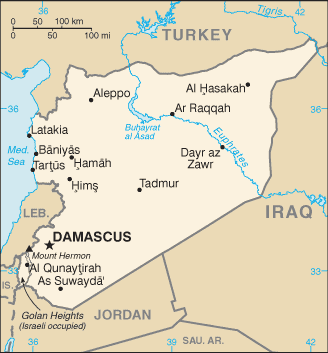While Syria’s ongoing civil war is no closer to resolution, the fighting does seem to be coming to a head on several fronts, with major fighting across the country create several new “front lines” for the various war-within-a-war situations. Though no one is likely to win outright, many factions fear major new losses.
 That’s driving a flurry of new diplomatic efforts, centered around the long-standing Russian effort to broker some sort of unified anti-ISIS front among Assad government and more moderate rebel forces. It’s an uphill battle, but a lot of countries which have traditionally spurned such efforts, like Saudi Arabia, are now more willing to at least discuss the matter.
That’s driving a flurry of new diplomatic efforts, centered around the long-standing Russian effort to broker some sort of unified anti-ISIS front among Assad government and more moderate rebel forces. It’s an uphill battle, but a lot of countries which have traditionally spurned such efforts, like Saudi Arabia, are now more willing to at least discuss the matter.
For years, the numerous nations with proxy forces inside Syria were all envisioning their own side eventually winning, or at least getting strong enough to negotiate a favorable position in the post-war environment. Fewer now can see a post-war environment any time soon, and are openly contemplating a “nightmare scenario” in which ISIS wins outright.
This has brought Russia and Iran, backing the government, to the table with the US, Turkey, and the GCC, who are backing assorted rebels, and some of the pro-West opposition groups are sending delegates to Moscow this weekend for another round of talks.
Previous talks in Moscow didn’t go well, with the opposition furious over the idea that the Assad government would join this anti-ISIS coalition, despite the whole point of such efforts being to bring the two factions into some sort of uneasy truce for the sake of fighting ISIS.
The UN Security Council has unanimously endorsed the idea of some sort of settlement that includes some sort of political transition, though the question of how still remains unresolved.
The big question on political transition is how involved the current government will be, and while publicly the US and other pro-rebel nations are still insisting Assad et al. can’t be involved at all, the fact that they are talking with Russia, which considers some involvement in the transition a must, suggests both sides are increasingly flexible on splitting the difference.


